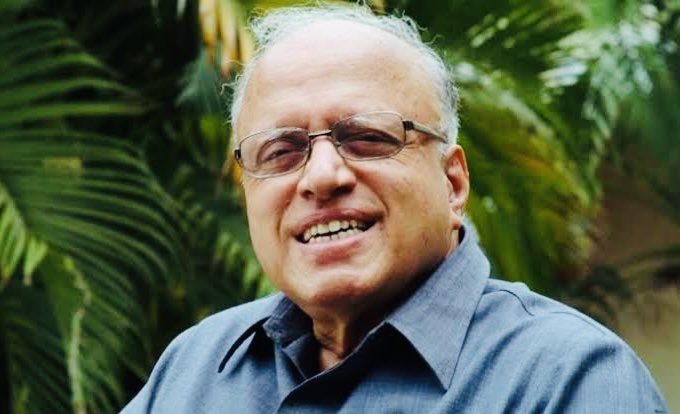Remembering MS Swaminathan - The Father of India's Green Revolution

- Varda Sharma
- 29 Sep, 2023
India mourns the loss of a true visionary and a pioneer in the field of agriculture, Mankombu Sambasivan Swaminathan, affectionately known as MS Swaminathan. The passing of this legendary agricultural scientist at the age of 98 leaves a void in the world of agriculture and humanitarian efforts that will be challenging to fill. MS Swaminathan was not just a scientist but a driving force behind the transformation of India's agricultural landscape, earning him the well-deserved title of the "Father of India's Green Revolution."
Born on August 7, 1925, in Tamil Nadu's Thanjavur district, MS Swaminathan dedicated his life to advancing agricultural science and improving the lives of India's low-income farmers. His contributions to agriculture are immeasurable and have left an indelible mark on India's history and the global agricultural community.
Swaminathan's journey in agriculture began in 1949 when he delved into researching the genetics of essential crops like potato, wheat, rice, and jute. It was a time when India faced the looming threat of famine and a shortage of food grains. It was during this critical juncture that Swaminathan, along with the likes of Norman Borlaug and other dedicated scientists, developed high-yielding variety seeds of wheat. This revolutionary step paved the way for what we now know as the 'Green Revolution.'
The 'Green Revolution' was a transformative initiative that significantly increased the productivity of wheat and rice through the application of chemical-biological technology. It played a crucial role in ensuring food security for a rapidly growing population and lifting countless low-income farmers out of poverty. The impact of the Green Revolution on India's agricultural landscape and economy cannot be overstated, and MS Swaminathan was at the forefront of this groundbreaking movement.
One of Swaminathan's most notable achievements was being awarded the first World Food Prize in 1987 for his instrumental role in introducing high-yielding wheat and rice varieties to India. This recognition underscored his commitment to ensuring food security and alleviating hunger. In the wake of this honor, he established the MS Swaminathan Research Foundation in Chennai, further emphasizing his dedication to advancing agricultural research and development.
His accolades extended far beyond the World Food Prize. MS Swaminathan was a recipient of the prestigious Ramon Magsaysay Award in 1971 and the Albert Einstein World Science Award in 1986. He was also honored with the Padma Shri, Padma Bhushan, and the Padma Vibhushan, among India's highest civilian awards. His contributions to agriculture and humanitarian causes did not go unnoticed, as he received the H K Firodia award, the Lal Bahadur Shastri National Award, and the Indira Gandhi Prize.
Throughout his career, Swaminathan held various administrative positions in agricultural research and development, serving as the director-general of the Indian Council of Agricultural Research and the International Rice Research Institute. His expertise and leadership were also evident during his tenure as the principal secretary of the Ministry of Agriculture in 1979.
Beyond the borders of India, MS Swaminathan's influence reached international heights. He became the president of the International Union for Conservation of Nature and Natural Resources in 1988, emphasizing his commitment to environmental conservation. In 2004, he was appointed as the chair of the National Commission on Farmers, where he continued to advocate for the welfare of farmers and sustainable agriculture practices.
Time magazine recognized Swaminathan's global impact by naming him one of the 20 most influential Asians of the 20th century, a testament to his enduring legacy. His work transcended borders and ideologies, uniting people in the shared goal of improving agriculture and ensuring food security for all.
As we mourn the loss of MS Swaminathan, it is important to celebrate his life and remarkable contributions. His legacy is not only in the scientific advancements he pioneered but also in the lives he touched and the hope he instilled in countless farmers and individuals around the world. MS Swaminathan's work continues to inspire generations of scientists, policymakers, and humanitarian leaders to address the pressing challenges of food security and sustainable agriculture.
In honouring his memory, let us renew our commitment to the principles he stood for – scientific innovation, environmental sustainability, and social justice in agriculture. MS Swaminathan's legacy will forever remind us that with dedication, innovation, and compassion, we can indeed cultivate a brighter and more food-secure future for all.
As we bid farewell to this luminary, we express our gratitude for his unparalleled contributions and his unwavering dedication to the betterment of humanity through agriculture. The legacy of the "Father of India's Green Revolution" will continue to flourish and inspire for generations to come.




